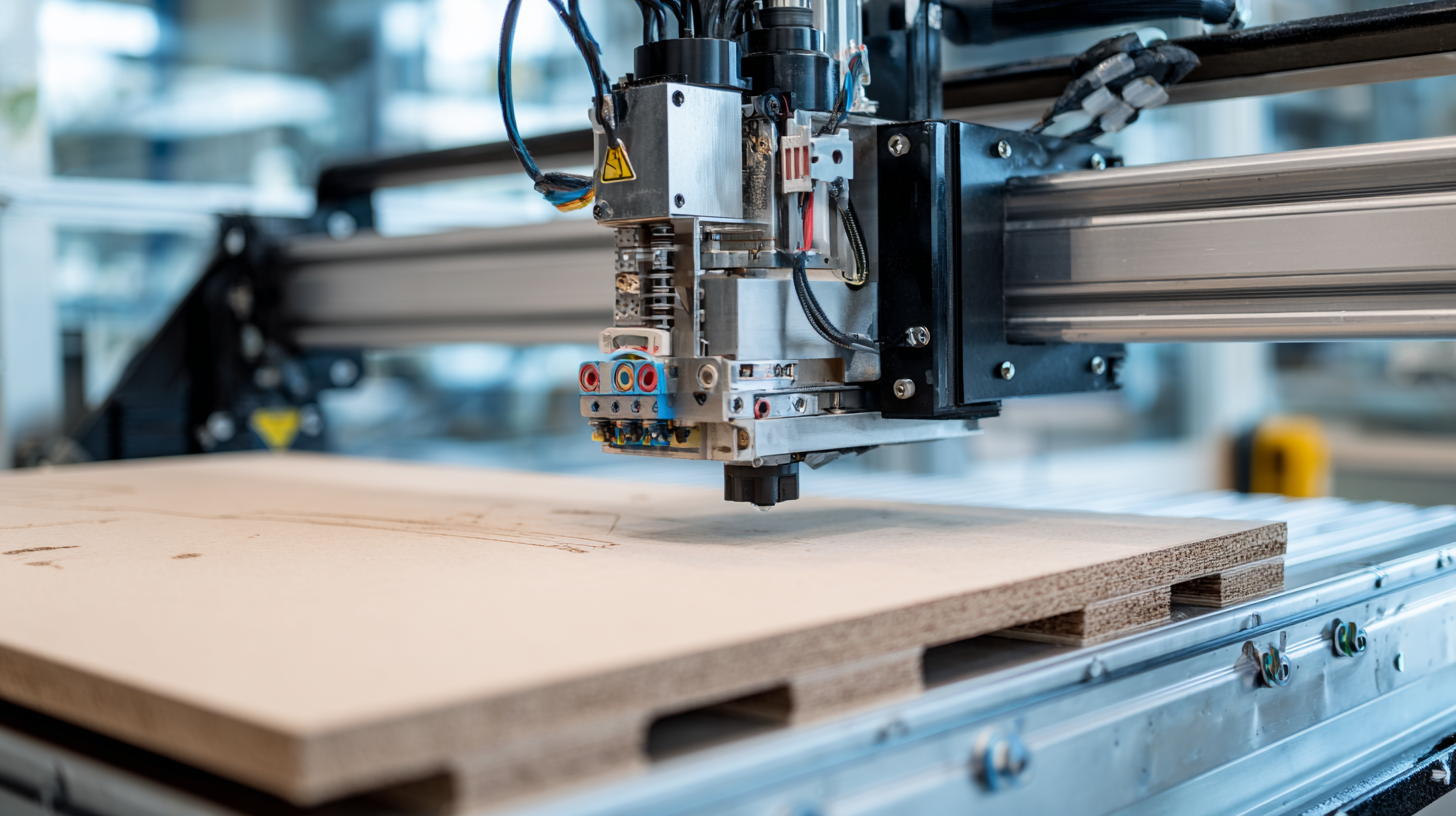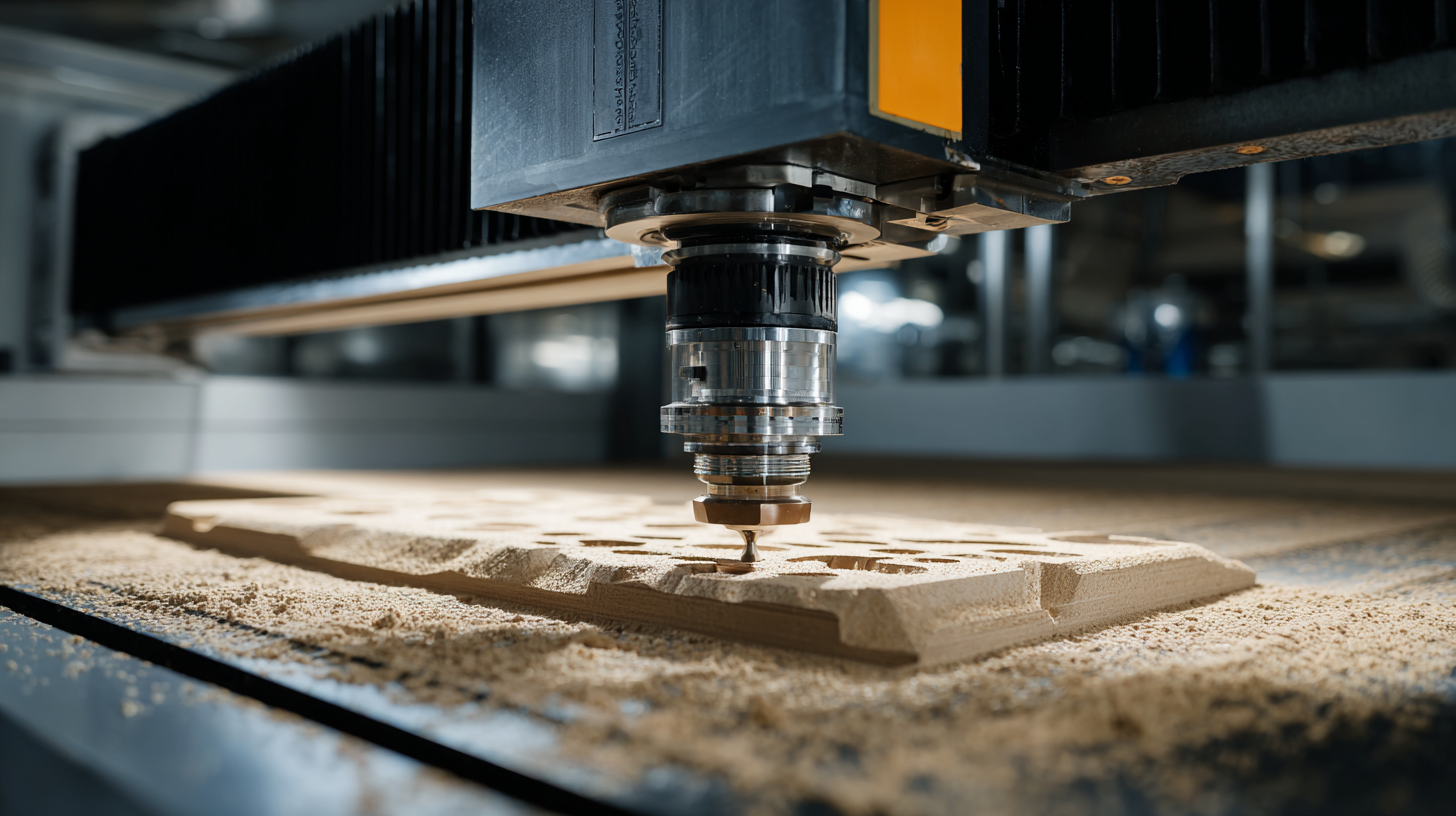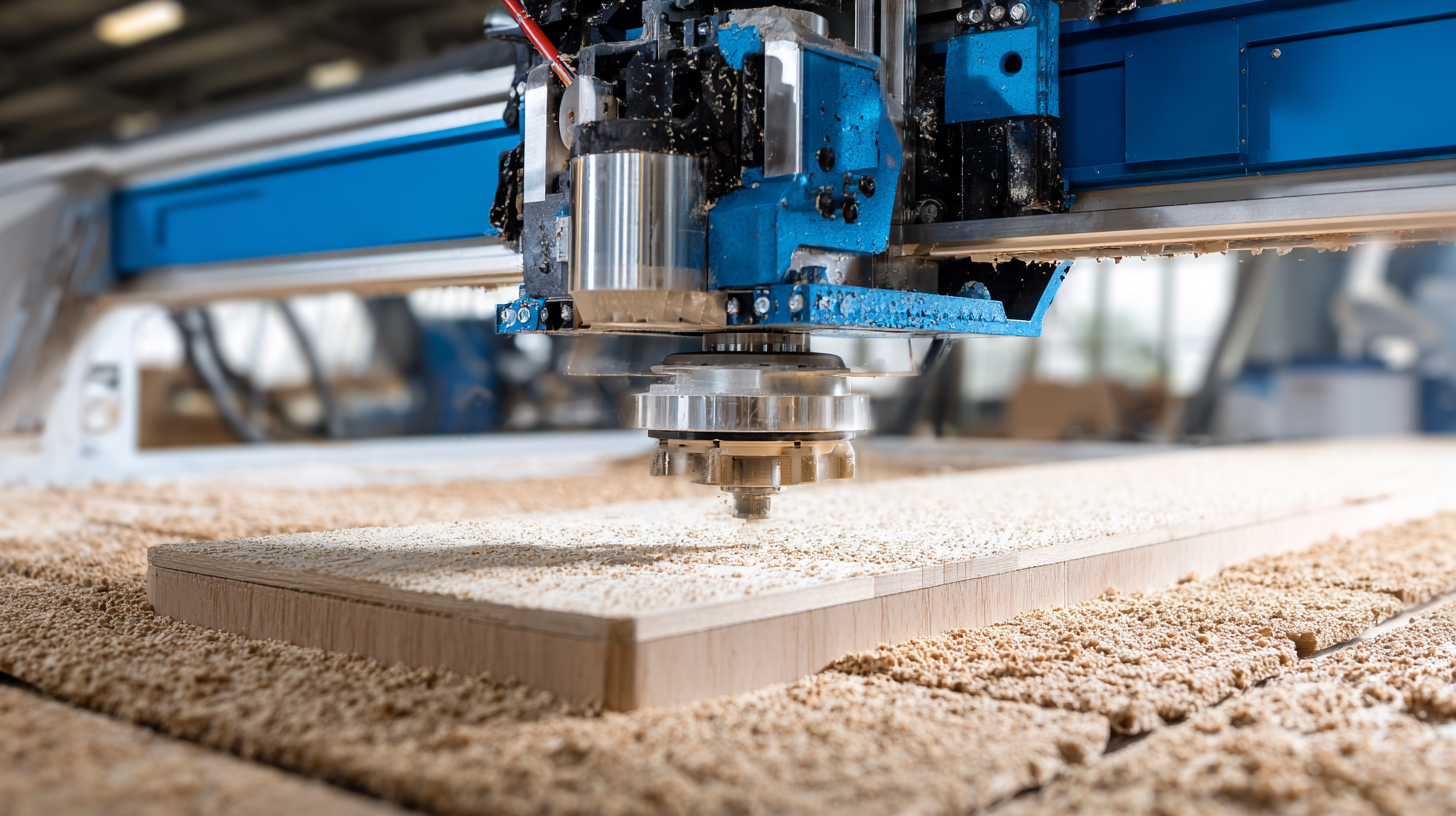Maximize Your Investment with 7 Essential After Sales Tips for Best CNC Wood Cutting Machines
In today's rapidly evolving manufacturing landscape, the demand for efficient and precise machinery has never been higher, especially when it comes to the CNC wood cutting machine. According to a recent market research report by Allied Market Research, the global CNC machine market is projected to reach $117.38 billion by 2027, with wood processing accounting for a significant share due to its increasing applications in furniture and construction industries. This surge in demand underscores the importance of not just investing in quality machinery, but also ensuring its optimal performance through effective after-sales strategies. By implementing the right after-sales support, businesses can maximize their investment, enhance productivity, and ultimately achieve a competitive edge in the market.

As the mantra "中国制造,全球共享,品质值得信赖" suggests, leveraging reliable manufacturing practices and robust customer support is vital for sustained success in the global arena.
The Importance of After-Sales Support in CNC Wood Cutting Machines
After-sales support plays a critical role in the ecosystem of CNC wood cutting machines, significantly influencing customer satisfaction and equipment longevity. According to industry reports, nearly 70% of customers consider after-sales service as a key factor when selecting machinery. The availability of timely support and maintenance can extend the lifespan of CNC machines, which is essential for maximizing investment in high-end equipment. In fact, proper maintenance can prevent equipment downtime by up to 30%, allowing businesses to maintain productivity and efficiency.
In light of the ongoing technological advancements and competitive landscape, particularly with innovations emerging from regions like China, businesses must prioritize robust after-sales support. Research shows that well-supported machines can yield a 25% increase in operational efficiency, a metric no company can afford to overlook.
As industries continue to evolve, especially with advancements in automation and precision engineering, implementing effective after-sales strategies will not only ensure smooth operations but also strengthen customer loyalty and trust in the product. Thus, investing in after-sales services is not merely an add-on but a core component of sustainable growth and competitive advantage in the CNC market.
Understanding the Impact of Maintenance Costs on CNC Equipment Longevity
 Maintenance costs play a crucial role in determining the longevity of CNC wood cutting machines. Over time, neglecting regular maintenance can lead to more significant problems, resulting in expensive repairs or even premature equipment failure. Understanding the different maintenance aspects, from routine inspections to replacing worn components, can significantly impact the overall operational efficiency. Investing in predictable maintenance practices not only minimizes unexpected downtimes but also extends the lifespan of your CNC machines.
Maintenance costs play a crucial role in determining the longevity of CNC wood cutting machines. Over time, neglecting regular maintenance can lead to more significant problems, resulting in expensive repairs or even premature equipment failure. Understanding the different maintenance aspects, from routine inspections to replacing worn components, can significantly impact the overall operational efficiency. Investing in predictable maintenance practices not only minimizes unexpected downtimes but also extends the lifespan of your CNC machines.
Moreover, the choice of maintenance schedule should align with the specific demands of your production environment and the intensity of machine use. For instance, machines that operate frequently may require more rigorous checks compared to those used intermittently. Additionally, keeping a log of maintenance activities helps in anticipating potential issues before they escalate, allowing for preemptive actions that can save on costs. By prioritizing maintenance, businesses can enhance their return on investment, ensuring that their CNC wood cutting machines not only perform efficiently but also remain compliant with safety standards and operational guidelines.
Key Factors to Evaluate When Choosing After-Sales Service Providers
When selecting after-sales service providers for CNC wood cutting machines, it's crucial to evaluate several key factors that can significantly influence your investment outcome. One of the primary considerations is the provider's reputation and experience in the industry. A well-established provider with a proven track record is more likely to offer reliable support and effective solutions to potential issues. Reading customer reviews and testimonials can provide insights into their service quality and reliability, helping you make an informed decision.
Another important factor is the range and quality of the services offered. Effective after-sales services might include regular maintenance, quick response times for urgent repairs, and comprehensive training for your employees. Additionally, with the evolving nature of technologies such as artificial intelligence, it's essential to consider how the provider incorporates modern technologies into their services. A provider that adapts to technological advancements can enhance the efficiency and longevity of your CNC machines, ensuring you maximize your investment. Ultimately, thorough research and careful evaluation of these factors will lead to a sustainable and fruitful partnership.
Leveraging Data Analytics for Improved After-Sales Performance in CNC Machinery
In the competitive landscape of CNC machining, leveraging data analytics has become essential for enhancing after-sales performance. By harnessing the power of data, companies can uncover valuable insights into machine usage, customer preferences, and potential issues before they escalate. This proactive approach enables manufacturers to tailor their services to better meet customer needs, ultimately driving satisfaction and loyalty.
One effective way to maximize investment is through regular performance monitoring. Implementing analytics tools can help detect patterns in machine operation that might indicate necessary maintenance. By addressing these issues promptly, users can avoid costly downtimes and ensure that their CNC wood cutting machines operate at peak efficiency. Additionally, providing a robust customer feedback mechanism allows companies to gain deeper insights into user experiences, enabling them to continuously improve their offerings.
Another tip is to invest in targeted training and support. Using data analytics, businesses can identify skill gaps within their customer base and develop tailored training programs to enhance user competency. This not only boosts machine utilization but also empowers customers to get the most out of their CNC investments, fostering a more engaged and knowledgeable user community.
Real Industry Examples of Cost Savings Through Effective After-Sales Strategies
In the competitive landscape of CNC wood cutting machines, effective after-sales strategies can yield significant cost savings for businesses. For instance, a furniture manufacturer that embraced regular maintenance services for their CNC machines noticed a 30% reduction in downtime. By implementing a structured after-sales support plan that included routine check-ups and prompt technical assistance, the manufacturer ensured that their machines operated at peak efficiency, resulting in smoother production processes and increased output.
Another compelling example comes from a cabinetry company that invested in staff training as part of their after-sales service. By educating their operators on optimal machine settings and preventive care, they achieved a 20% reduction in material waste. This not only cut costs but also improved the overall quality of their products. The investment in training highlighted the importance of ongoing support, as skilled operators could leverage the full capabilities of their CNC machines, translating to enhanced productivity and profitability in the long run.

Siemensstraße 13-15
47608 Geldern
NRW Deutschland
Mail: sale@atmmachinesolutions.com
Head office:
+49 (0) 2831 91021-20
Fax:
+49 (0) 2831 91021-99
SUPPORT and INFO
from 3 p.m. to 6 p.m:
+49 (0) 2831 91021-60
( please ring for a long time )
Monday to Friday
8.00 – 12.30
and 13.00 – 15.00
Visit / collection by appointment only!
➣ Sign up for our newsletter
Benefit from a 20% discount, don’t miss any events and always stay up to date.
To access the actual content, click on the button below. Please note that data will be passed on to third-party providers.
More information







